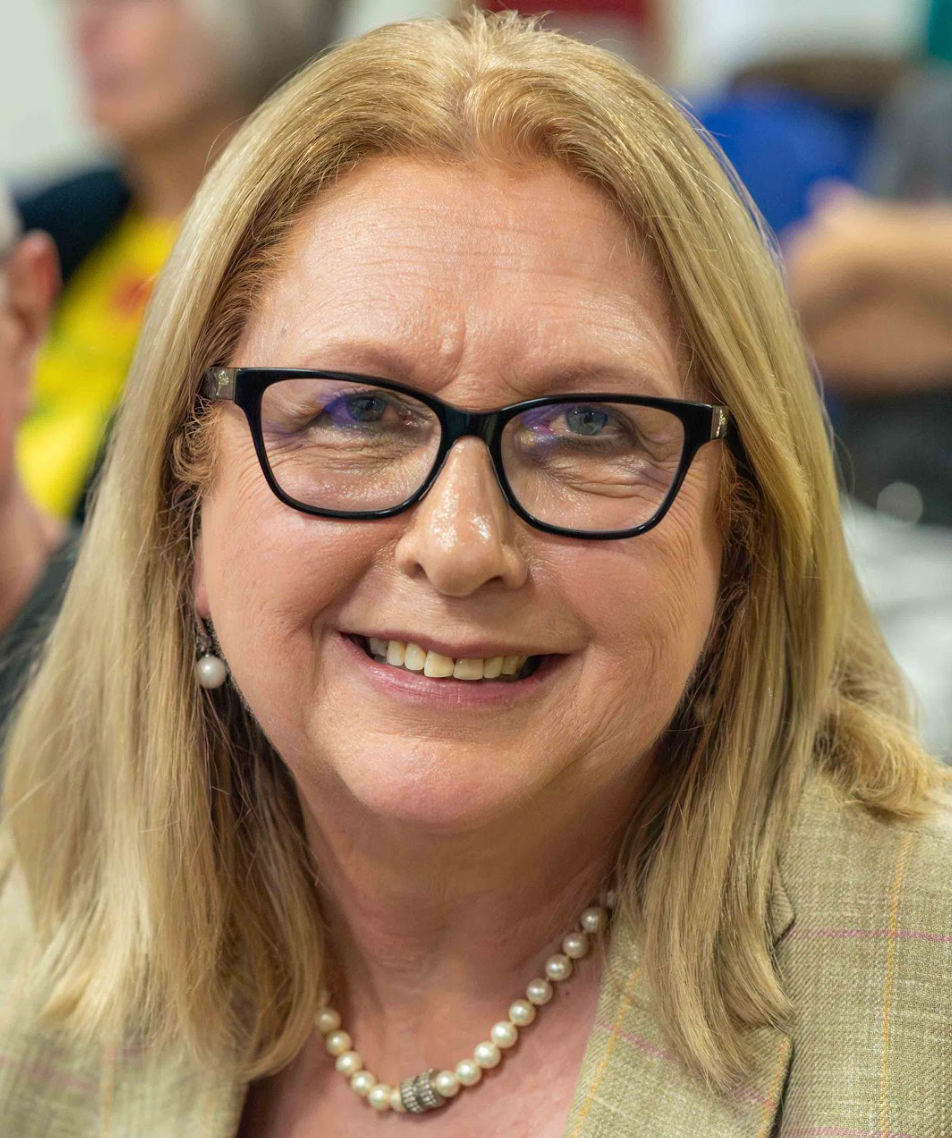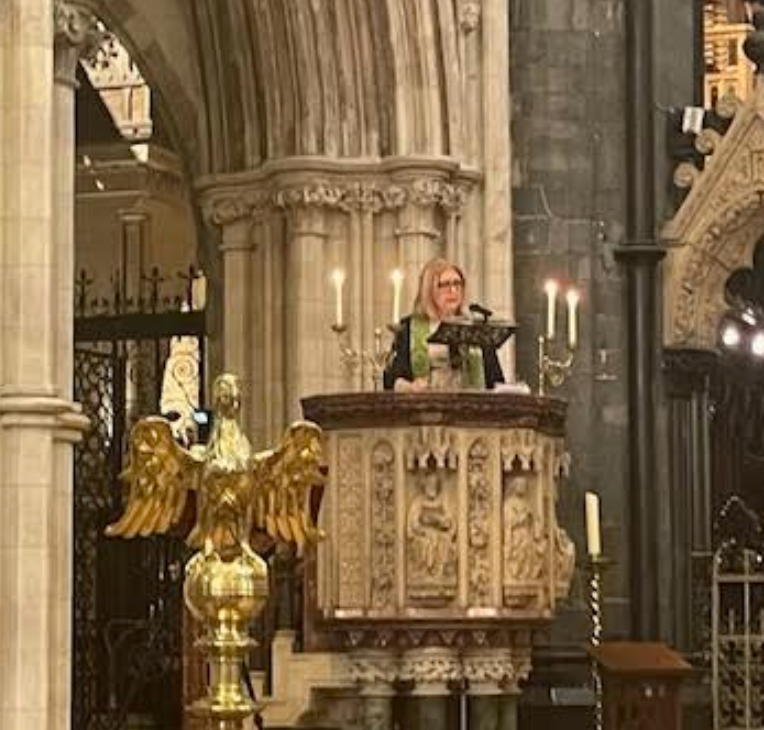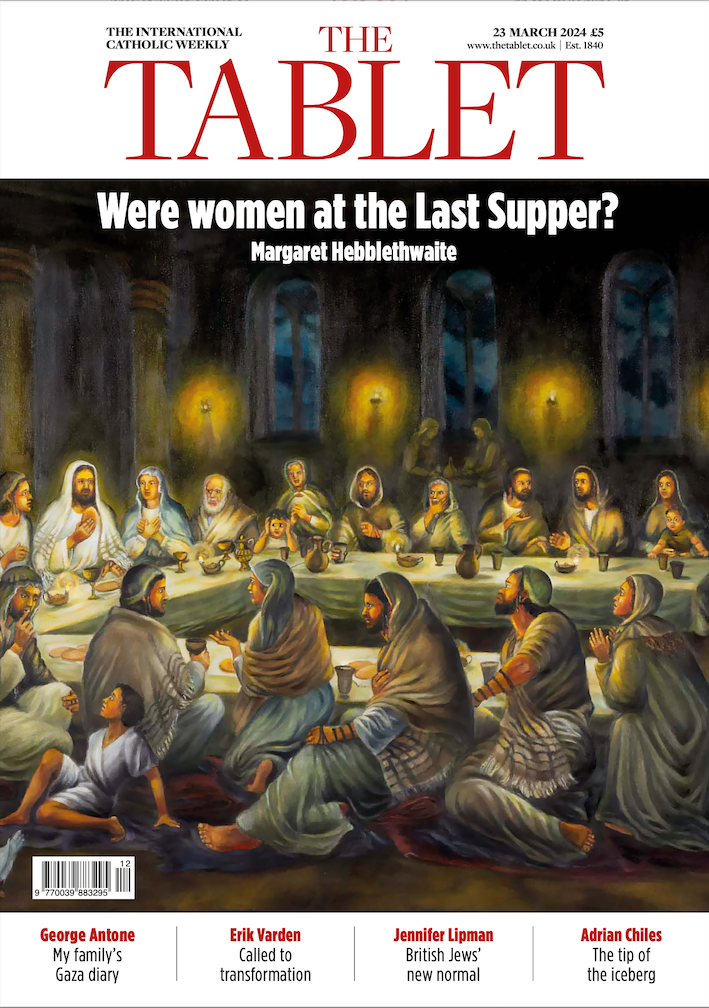Ireland’s synodal path – O’Hanlon’s way
One of the leading thinkers in the Irish Church welcomes the Pope’s ‘change of culture’ but warns that it will peter out unless there are reforms to structures and institutions
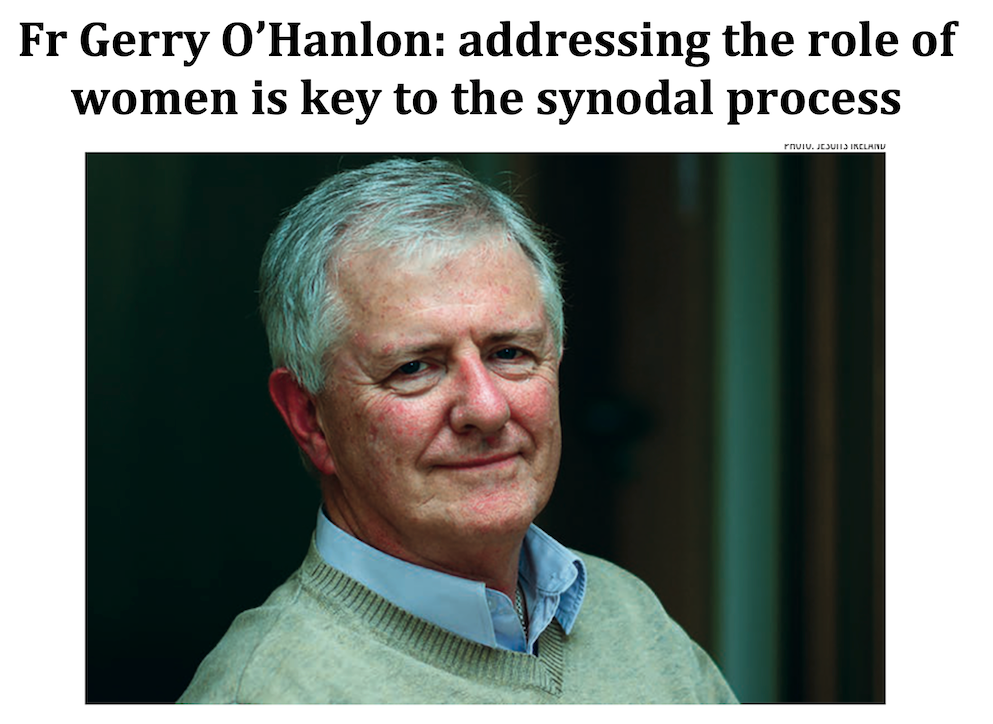
By SARAH MAC DONALD; The Tablet; 27 April 2024
O'Hanlon’s way
“REPRESSED TRUTH turns poisonous,” warned Cardinal Maximos IV Saïgh, one of the fathers of the Second Vatican Council. It’s an insight that could be applied to the debate over synodality, according to Fr Gerry O’Hanlon. “If you rely on control and force to inculcate what’s true, and don’t, as the Vatican decree Dei Verbum says, turn to persuasion, then you are really going down a rabbit hole.”
The Dublin-born theologian and former provincial of the Irish Jesuits welcomes the “change of culture” in the Church that Pope Francis has fostered. Greater freedom of speech has given rise to “an altogether healthier atmosphere”. The 76-year-old believes “a lot of reflection” is needed on the Church’s use of power. He reminded me of Ladislaus Orsy’s suggestion that the Church’s monarchical use of power gave it a very weak immune systemwhen it came to issues such as safeguarding. “That top-down culture whereby clerics were put on a pedestal meant it wasn’t easy to question them; that is not good.”
O’Hanlon recalls that in the 1950s Karl Rahner had argued that there should be open and frank discussion within the Church. “That allows voices to be heard, which can be difficult for those in authority but in the long run, it’s healthier.” It’s also more biblical, he pointed out. “Exegetes tell us there was a lot of conflict and discussion in the Early Church on what was the proper way to receive Gentiles. Searching for truth and being able to endure the conflict that can be part of that process is deep in our roots as a Christian community.”
O’HANLON ENTERED the Jesuits in 1965, having been schooled at Belvedere College, Dublin. At University College Dublin he studied for a degree in Latin and Greek and this was followed by an MA in Classics at McMaster University in Canada. His doctorate was on the immutability of God in the theology of Hans Urs von Balthasar. As a young postgraduate student he met Balthasar in Rome; he also met Rahner in Munich. “I found Balthasar very intriguing on the big questions of God, Jesus Christ and salvation. I couldn’t accept his reasoning on more contemporary issues such as Humanae Vitae and the ordination of women.”
He did his doctoral studies at Queen’s University Belfast. “I was interested in Northern Ireland because of the political context.” He lived in the Presbyterian chaplaincy beside Queen’s University. “They were a bit shocked at the start that I was a Catholic, a priest and a Jesuit – all their horrors mounted up! But I was still young enough to play for their rugby team.” That built up camaraderie. Travelling to away matches he took their banter on the chin, including their cheering at the River Boyne and booing at the GPO on O’Connell Street. The relationship was tested by the signing of the Anglo-Irish Agreement in 1985. “I was the only one they had to vent their anger on ... they were furious. They felt betrayed, particularly by Margaret Thatcher. There was a cooling of the atmosphere for two or three weeks. I could understand why they were doing it and yet it was very alienating – these were people that I had got to know.” Today, he still counts them as some of his best friends.
His doctorate on Balthasar has proved useful in the current papacy. “Francis has this thing about the ‘Petrine principle’ and the ‘Marian principle’. The Petrine is male – to do with governance and authority; the Marian is female – to do with love and receptivity.” O’Hanlon is unconvinced. “It seems to me a strange kind of theology; I don’t see the rational basis for it.”
Balthasar, he explains, was trying to argue for the equality of men and women, so he was ahead of what had gone before. “But he was arguing for their complementarity in a way that puts us in difficulty when we look at the role of women in civil life and in the Church. I know where the Pope is coming from, but I think the theology is questionable. I’m open to the fact that men and women are equal but maybe different. But I would say, don’t essentialise that – don’t make it so firm that women can’t do certain things.”
He sees his role as a theologian “to call it as I see it in terms of the adequacy of the foundations given to support certain positions”. He notes that the Catholic faithful in large parts of the world have not accepted church teaching on sexuality and gender, specifically around the ministry of women. Referring to the sensus fidelium, articulated by John Henry Newman and in the Vatican II document Lumen Gentium, O’Hanlon highlights that “when there is a breakdown between what the people accept and what the Church teaches, there are protocols, spelt out for exam- ple in the 2014 document from the International Theological Commission” (signed off by Cardinal Gerhard Müller, not anyone’s idea of a progressive). “That says very clearly that where there is resistance or indifference to or rejection of Catholic teaching, then the Church must try to discern whether it’s the laxness of people – is it the spirit of the age that is seducing people into something false – or does the teaching need better clarification, or does it need reformulation?”
The argument that the Church lacks the authority to ordain women as priests, O’Hanlon believes, needs to be probed. He
points to the 1976 report of the Pontifical Biblical Commission – which included Cardinal Carlo Maria Martini and Raymond Brown – which concluded that there was nothing decisive in the New Testament to determine, one way or another, whether women should be ordained. “So what you have is a quite flimsy basis and one certainly worth looking at again.” He also believes the argument that a woman can’t represent Christ rests on shaky grounds. There are, he says, “lots of good reasons to say that limiting that representation of Christ to just the maleness of human beings doesn’t hold up”. Women can baptise children and in doing so they represent Jesus Christ; in marriage, the sacrament is conferred by the man and the woman on each other – the priest is the witness; the woman is representing Christ for the man. O’Hanlon understands the reluctance of women who feel called to the priesthood to give voice to it. “For a lot of my adult life as a priest and as a Jesuit, the culture in the Church was very forbidding for those who wanted to call out these things.”
O’HANLON IS a member of the Synodal Pathway Committee in Ireland. This synodal journey of the Irish Church is happening in tandem with the Synod on Synodality in Rome. There is some confusion over the two processes. “It is very new and it is going to take time to bed down. But people have already spoken of their positive experiences of being listened to.” There was a lot of scepticism and cynicism about the listening and consultation because many people had become habituated to a very passive notion of the laity, whose role was to “pray, pay and obey”. Increasingly people see that synodality is not just “a pro forma” exercise. “I heard so many people say, with great gratitude, I’m 65 or 70 and this is the first time in my life that I’ve been asked for my view. It’s so liberating when it hap- pens. That change of culture is going on.
He is hopeful that the Synod assembly in Rome in October will see changes emerge which will “concretise what co-responsibility looks like”. For Gerry O’Hanlon, the way the role of women is addressed will be absolutely key to the success of the synodal process. “There is a real urgency and a real opportunity,” he says, but he fears it will “peter out” unless new structures, institutions and laws follow. His message to those attending the synod is “don’t be foolish or reckless – but don’t avoid taking decisions.”
Sarah Mac Donald writes for The Tablet from Ireland.
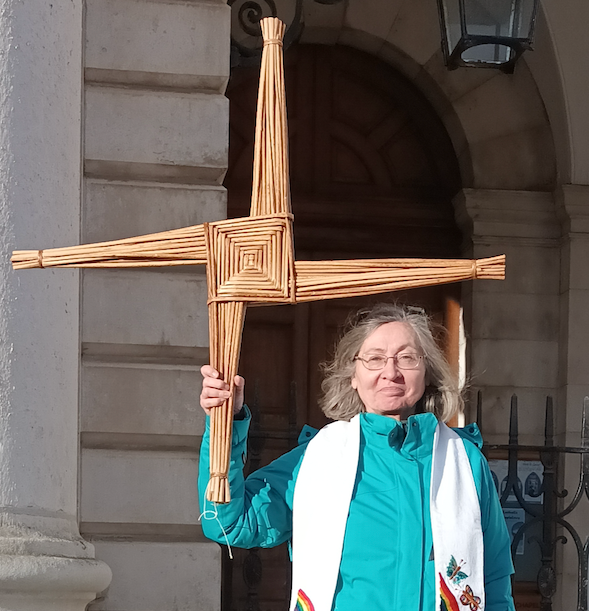

Women are a problem for the Catholic Church, an institution with ingrained misogyny - Soline Humbert
About us
We are working to develop inclusive communities based on our 6 Aims, while being open to engage with all sections of the church about our lives in the church today.
Contact Info








